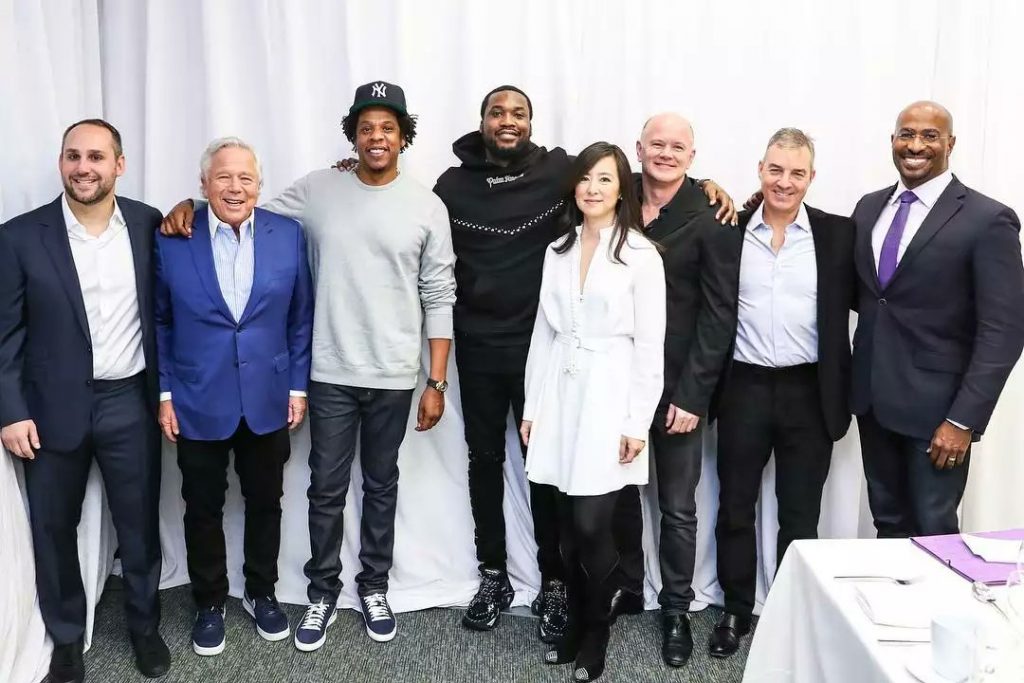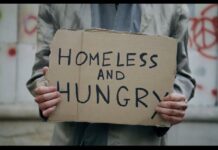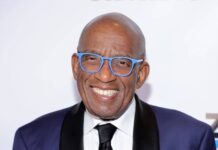*JAY-Z and Meek Mill announced last month that they had teamed with influencers across sports, entertainment, and business industries, to launch a new criminal justice reform organization called REFORM Alliance.
The organization, inspired by Meek’s ongoing legal battles with the law, aims to reform parole and probation policies. As reported by Complex, the founding partners include a group of billionaires: 76ers owner Michael Rubin, Patriots owner Robert Kraft, Nets co-owner Clara Wu Tsai, hedge fund manager and investor Daniel Loeb, cryptocurrency titan Michael Novogratz, and Vista Equity Partners founder Robert Smith.
With $50 million in funding, Van Jones, who is at the helm as CEO, recently dished with Complex about what he wants to accomplish at his new gig. Below are excerpts from the interview.
JAY-Z, Meek Mill launch prison-reform alliance, pledge $50 Million#REFORM is a new initiative focused on overhauling the probation and parole system with the goal of freeing at least 1 million people caught up in the system within the next five years https://t.co/YAkh6gPzAF pic.twitter.com/0iaau2ijpq
— JAY-Z Daily (@JAY_Z_Daily) January 23, 2019
Our focus is, of course, on probation and parole of the about six million people who are under the control of the criminal justice system. A little bit more than two million are locked up in jails and prisons, but a little bit more than four million are caught up on probation and parole.
What we want to do is focus on very simple things that you probably think are already in place—I certainly thought they were already in place. For instance, a cap on how long you can be on probation. In some states there’s no cap. They can keep adding to your probation, just like Meek Mill. You could do something that gets you a charge, and then you can be, essentially, not free for the rest of your life because you’re late for a meeting—15 minutes late, they add a year on probation. Your aunt has an asthma attack in the next neighborhood over and you go over to help her, you’ve violated and they add five years onto your probation. Putting a cap on probation and parole is something that we’re passionate about.
The other thing we’re passionate about is moving away from sticks and toward carrots. Right now, to try to keep people on the straight and narrow when they’re on probation or parole, if you do something bad, they’re going to hurt you or add more time for you being under supervision. They’re going to send you back to jail or prison. We’re saying, “Hold on a second. Why don’t we flip this around?” Because when you send somebody to jail or prison, they’re going to lose their house, they’re going to lose their job, they’re going to lose their kids. It’s going to be bad anyway. What if we reversed it? What if we said, “You’re going to be on this long, but we can shorten it if you go to community college, if you go to rehab, if you get a certificate or a license for a trade”? We think that needs to be tried.
Some will say, “People are messing up; they need to be punished.” Well, hold on a second. If somebody commits a new crime, they should go to jail. We’re talking about the tail end of an old crime where now they’re out in the community and trying to rebuild their lives, and then they do some non-crime technical violation.
The system overall should be more geared towards giving you incentives to do well versus punishment to do badly, because the punishment of going to jail or prison is so catastrophic. These are the kind of things that seem so boring and technical until you talk to a human being who’s gone through this.
You use “Fight Different” as your slogan. What does that mean? What will you do differently than other criminal justice reform organizations?
“Fight Different” isn’t necessarily a slogan to differentiate ourselves from any other criminal justice group, many of whom are amazing, and we’re going to be excited to work with. It’s to distinguish ourselves from the same old politics as usual where the liberals are over here and the conservatives are over there and the experts are over some other place and directly impacted people some other place, and nothing’s getting done. When we say fight different, we mean, first of all, let’s be really seriously bipartisan in bringing to the table people who may disagree on 99 other issues but can unite on this issue. That’s fighting different. Because right now, even among progressives, if you don’t agree on all 100% of my agenda, we can’t speak. So we think that’s fighting different when we really center the voices of the people who are most impacted.
The trick is, we have major celebrities and billionaires setting the table, but the people who you’re going to hear from the most are not people with big voices in American society yet. That’s a big part of REFORM’s approach: You take people who are voiceless that have these incredibly powerful stories, and you take people who have big voices and big storytelling platforms, and you bring them together in a way that we think can really change hearts and minds.
We want to change laws and hearts. Sometimes you have campaigns that are only about public opinion, and sometimes you have campaigns that are only about passing a bill. We want to change public opinion so that literally there could be hundreds of bills that get passed over the next several years because we’ve helped to change the tide of public opinion.
REFORM Alliance’s goal is to amplify groups already in the criminal justice reform arena. But you also said in an interview, “We’re not a bank.” If you’re not directly giving money to other organizations, how is REFORM amplifying their message and their work?
You saw at the launch we lifted up Topeka K. Sam, who is a very strong advocate with her own organization. We gave her the microphone and gave her a ton of exposure. She already has her own growing following. A big part of what organizations need is attention. People are focused on the financial capital that we have, but actually the social capital and the media capital that we bring to the table is going to wind up being the most powerful. $50 million sounds like a lot of money until you realize we got 50 states that we got to pass bills in, so we’re going to continue to raise money.
The biggest thing we can bring to any fight is attention. We can convene lawmakers at the very highest level to be at the table with people who are directly impacted. They might never have gotten a face-to-face meeting with the Speaker of the House in a state or the governor without having to protest or pay a lobbyist. We bring a lot more to the table than just the financial strength. We want to relate to people based on that and based on the strategy for passing legislation rather than being seen as a bank or foundation.
Jay-Z and Meek Mill are among your founding board members. Puma just released a pair of sneakers, the proceeds of which go to benefit you guys. In what is I assume not a coincidence, Meek is pictured on your website wearing a Puma sweatsuit. How do you draw a line as the CEO between your organization’s advocacy and the business interests of the people on your board, including businesses like Roc Nation and Tidal that have promoted your efforts?
We take as our gold standard the ONE Campaign that Bono has run. RED has a big initiative there. It’s become very common for causes to join forces with commerce. That’s very common now and very effective. There are people who are alive right now who would have died of AIDS had it not been for the RED campaign.
We are transparent about it. We’re not hiding the ball. We’re proud that Puma wants to be part of the effort, and we hope other corporations and business leaders will be a part of the effort. We need those voices, and we need their platforms. We need their money. We need their legitimacy. We want to have 100 more companies like Puma.
One of your board members is Daniel Loeb. Daniel has a history of controversial racially-charged statements. Why is he someone you want on your side when you’re fighting for criminal justice reform? Have you addressed those comments with him directly?
First of all, nobody’s made more controversial comments in public life than Van Jones. Let’s just start out with that. Nobody’s put out more controversial music in the eyes of some than JAY-Z and Meek Mill. None of these people on this board are without detractors and without mistakes. Part of the point of the criminal justice movement is we don’t hold people down and beat them up over stuff that they have done in their past as we all make mistakes.
Part of the problem is that this prison culture has now polluted American culture. You did something wrong; we’re going to throw you away forever. That started in the court system around drug offenses in the ’80s and ’90s, and now we have an entire culture—they now call it “cancel culture”: You make one mistake, I’m going to throw you away forever. People don’t even understand the degree to which having this poisonous incarceration industry has not just hurt the people who are locked up. It’s poisoned the whole culture.
Read Van’s full interview here.
We Publish News 24/7. Don’t Miss A Story. Click HERE to SUBSCRIBE to Our Newsletter Now!






